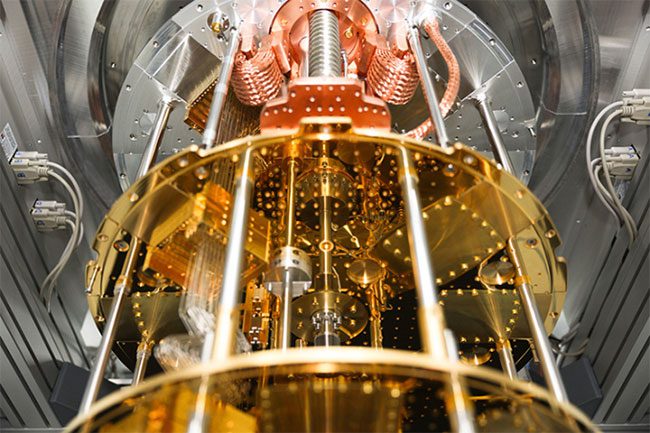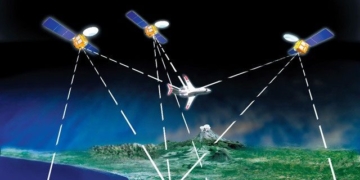Baidu Unveils Quantum Computer Accessible via PC and Smartphone
On August 26, Baidu, the technology company, introduced a quantum computer that can be accessed through PCs and smartphones.
This computer features only 10 qubits (the unit of quantum information), which is relatively small compared to advanced systems developed by leading universities in China and Western companies like Google and IBM. However, this marks a pioneering step in bringing future technology out of the laboratory.
“We have achieved superior performance in quantum computing, surpassing supercomputers in many specific problems. Further advancements, such as programmable quantum computers, require collaboration from industry leaders and academic researchers,” said Pan Jianwei, a leading quantum scientist at the University of Science and Technology of China.
The Baidu quantum computer, named Qianshi, can be accessed via an application provided by Baidu available in Apple, Huawei, or Xiaomi app stores, allowing users to download software and submit their own computational tasks, such as quantum circuit experiments.

Baidu’s newly launched Qianshi quantum computer. (Photo: Baidu Quantum Computing Research Institute).
Qianshi utilizes superconducting materials to create extremely low temperatures for the quantum processor, similar to the CPU in traditional computers. Its superconducting refrigerator cools the QPU (Quantum Processing Unit) to near absolute zero through a multi-layer cooling system. As a result, the combined quantum bits are unaffected by thermal noise caused by high temperatures.
“This is the world’s first integrated solution for both hardware and software in quantum computing,” emphasized Duan Runyao, Director of Baidu’s Quantum Computing Institute. “The system can be accessed remotely via personal computers (PCs), smartphones, and the Internet. While users can enjoy the convenience of the software framework provided by Baidu, they can select suitable hardware for their computations.”
Currently, in addition to the Qianshi QPU, two other separate processors (chips) from the Institute of Physics, Chinese Academy of Sciences, and the Academy of Innovation in Precision Measurement Science and Technology are also connected to the system.
“Integration, automation, and visualization are key technical features. This system standardizes daily operations and improves chip startup efficiency by at least 100 times for fundamental researchers,” Duan added.
Quantum computing expert Ji Zhengfeng at Tsinghua University believes that Baidu’s device will propel China’s research in the academic world.
According to Duan, the global industrial scale of quantum computing is expected to reach 800 billion yuan (116 billion USD) by 2031, with most major enterprises worldwide adapting to quantum computing technology within a decade.
“In the future, when scientists utilize 100 qubits, AI and portfolio optimization issues could be solved. With 1,000 qubits, cryptographic security could become feasible. With 10,000 qubits, global weather forecasting and big data processing will become commonplace,” Duan stated.


















































